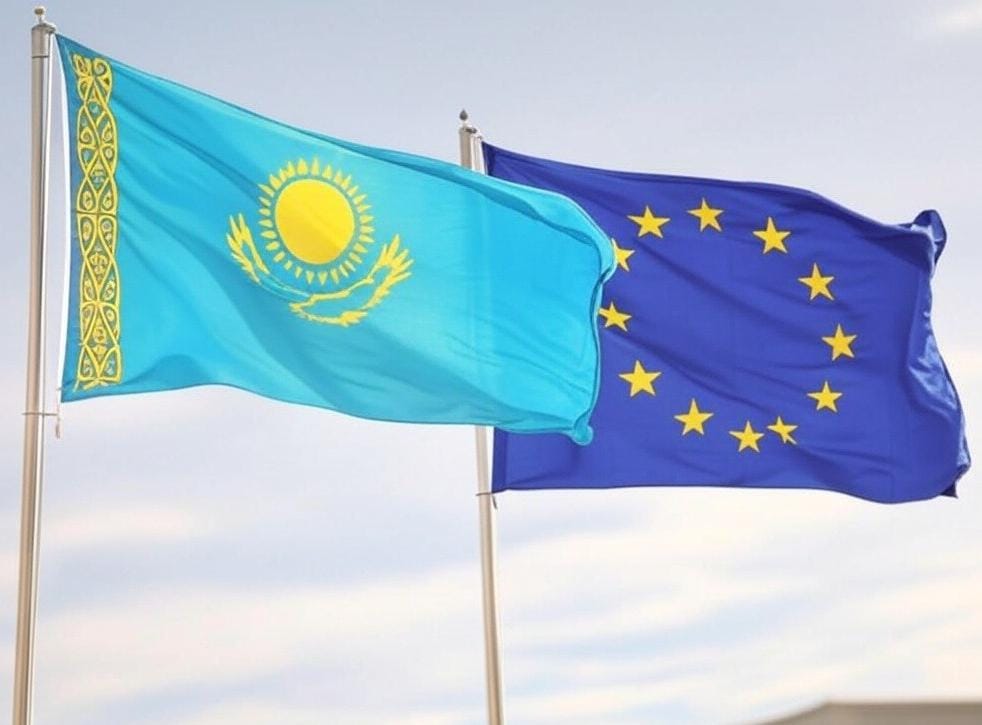BAKU, Azerbaijan, November 25. The upcoming EU - Central Asia Economic Forum, set to take place on November 26, 2025, in Tashkent, will serve as a key platform for deepening economic cooperation between the European Union and the Central Asian countries.
This forum continues the series of meetings initiated in 2021 in Bishkek and in 2023 in Almaty, with a focus on improving the business climate, enhancing transport and trade connectivity, promoting regional integration, developing skills, and establishing sustainable value chains for critical resources. The forum will include participation from EU representatives, government officials from Central Asia, members of the private sector from Europe and the region, international financial institutions, and other international organizations. For Kazakhstan, this cycle of meetings offers the potential to achieve several strategic and measurable outcomes.
A key potential benefit for Kazakhstan from participating in the forum is the development of transport infrastructure. On November 27, 2025, following the economic forum, an Investment Forum dedicated to the Trans-Caspian International Transport Corridor (TITR) will be held. This strategic trade route, for which the EU has allocated 10 billion euro, originates in China and passes through Kazakhstan, Uzbekistan, and Turkmenistan, crossing the Caspian Sea and continuing through Azerbaijan, Georgia, and Turkey before reaching Europe. For Kazakhstan, the route presents significant opportunities, as the country serves as a pivotal transit hub. Cooperation with the EU within the TITR framework offers prospects for modernizing ports, rail infrastructure, and logistics systems, which could enhance Kazakhstan’s transit capacity and increase revenues from trade.
Second, the forum provides Kazakhstan with additional access to European investments and financing tools. The EU has already invested significant funds in Kazakhstan: in the past two decades, EU countries have directed over $200 billion in direct investments into Kazakhstan’s economy. In 2024, direct investments from EU countries amounted to $7.9 billion. Additionally, the EU is a major trade partner for Kazakhstan. Bilateral trade between Kazakhstan and EU countries reached $48.8 billion in 2024, a 16.9% increase from 2023 ($41.3 billion). Kazakhstan accounts for 80 percent of Central Asia’s total trade with the EU. In 2024, Kazakhstan’s exports to the EU amounted to $38.14 billion, a 22.9 percent increase compared to the previous year ($31 billion), while imports reached $10.69 billion, a 1.9 percent increase from 2023. Furthermore, over 3,000 companies with European participation are currently operating in Kazakhstan.
A third potential benefit for Kazakhstan is related to raw material policies. The EU is seeking to diversify its supply of critical raw materials, and Kazakhstan is viewed as one of the key partners for stable supply chains of these resources. The country is a significant supplier of raw materials for European industries, including oil, petroleum products, uranium, ferroalloys, and titanium. In turn, the EU is actively working on developing sustainable supply chains for critical raw materials (CRMs), and Kazakhstan plays a crucial role in this process. The European Union supports Kazakhstan through several programs aimed at developing this sector. One such project is a program in which the European Bank for Reconstruction and Development (EBRD) is allocating 3 million euro to improve supply chains for strategic raw materials in Central Asia. The goal of this initiative is to facilitate joint projects and promote international best practices in building sustainable supply chains for critical raw materials.
During his visit to Kazakhstan in March 2025, the EU Commissioner for International Partnerships, Jozef Sikela, emphasized that Europe needs reliable access to critical raw materials essential for modernizing its economy. He expressed the EU's commitment to developing mutually beneficial cooperation with Kazakhstan in the extraction and development of these resources. According to Sikela, this partnership is intended to support all Central Asian countries, with a particular focus on boosting Kazakhstan's economy, strengthening its industrial potential, creating new opportunities for Kazakh businesses, stimulating innovation, and generating high-quality jobs.
This creates an opportunity for Kazakhstan not only to export raw materials but also to attract investment for processing and producing higher-value products. At the forum, the parties could discuss mechanisms for such integration, which could become a growth point for Kazakhstan’s national industry.
Finally, the forum will also strengthen cooperation in areas such as digital trade, education, and human capital development. The EU is already financing Kazakhstan in the areas of reforms, civil society programs, and academic mobility projects.
Additionally, Kazakhstan is actively participating in the EU’s Global Gateway initiative - a strategy aimed at creating smart, eco-friendly, and secure infrastructure connections in digital, energy, and transport sectors worldwide. In Kazakhstan, this strategy focuses on developing strategic partnerships in areas such as raw materials, battery technologies, and green hydrogen.
Participation in the EU - Central Asia Economic Forum opens up significant opportunities for Kazakhstan for sustainable and balanced growth. This is a chance for the country to strengthen transport corridors, which will directly impact the growth of transit revenues and the expansion of logistics routes. Developing raw material processing will not only increase product added value but also attract green investments, aligning with global sustainable development trends.
Institutional and financial support from the EU will improve Kazakhstan’s investment attractiveness, stabilize the business climate and creating a more predictable environment for foreign investors. Programs for skills development and digital transformation will help strengthen Kazakhstan’s human capital and technological potential, accelerating its integration into international economic and production chains. All of this creates new opportunities for economic growth and enhances Kazakhstan’s position both in Central Asia and on the global stage.







